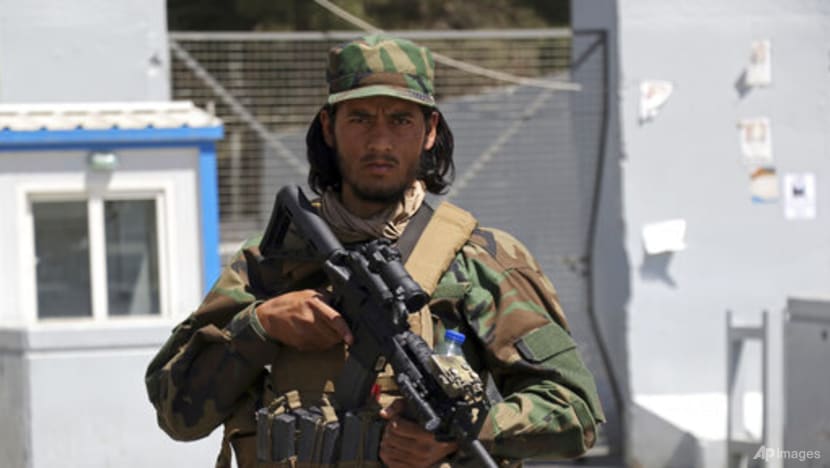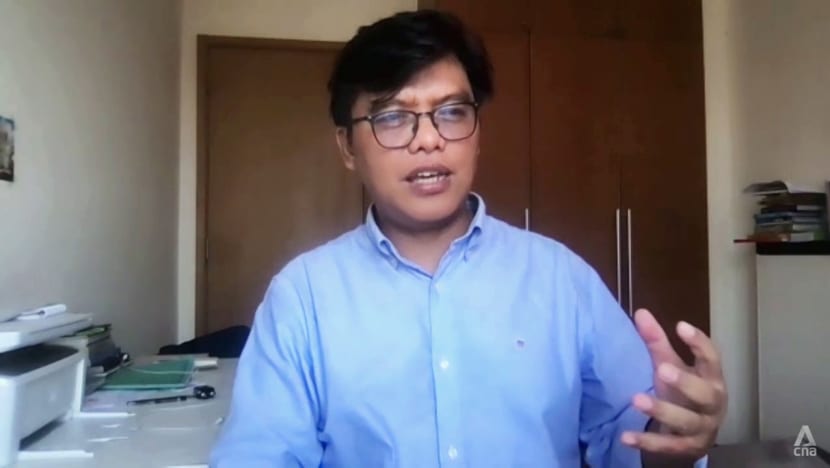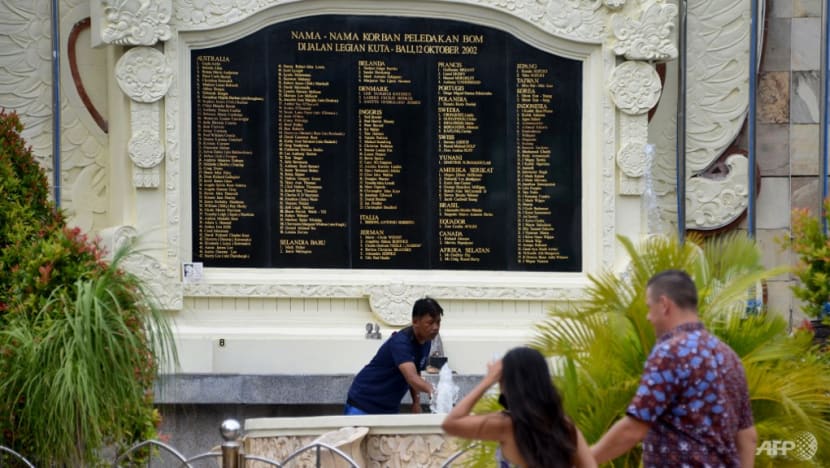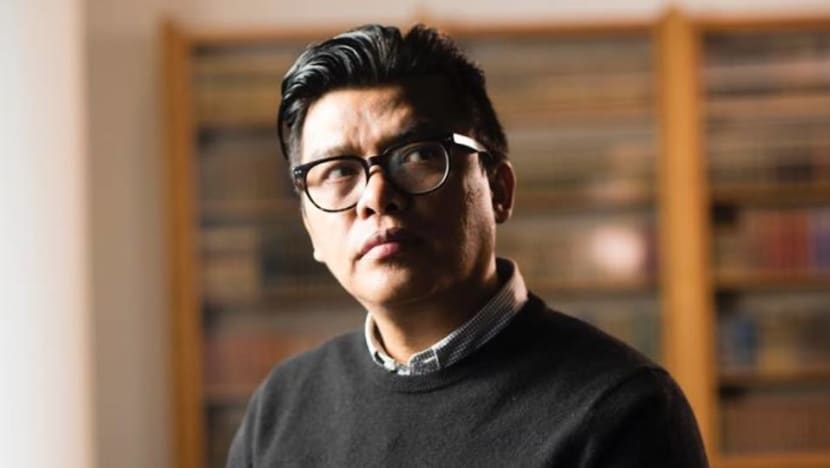Why Southeast Asia should worry if Afghanistan fails: Indonesian anti-terrorism expert
History shows that failed states can become fertile ground for transnational terrorist groups, an Indonesian expert tells In Conversation. But he adds there does not appear to be an immediate threat to Southeast Asia.

Editor's note: This is the amended version of an earlier report which has been edited to better reflect the content and context of the programme.
SINGAPORE: Southeast Asia need not worry about an immediate rise in terror attacks or recruitment of foreign fighters after the Taliban’s takeover of Afghanistan. The bigger worry is if Afghanistan becomes a failed state under the Taliban, said Indonesian anti-terrorism expert Noor Huda Ismail.
“History has shown any conflict areas, any failed state, will become fertile ground for transnational terrorist organisations like ISIS or Al Qaeda to regroup. In the context of Southeast Asia, like what Jemaah Islamiyah (JI) did,” said Noor Huda, founder of the Institute for International Peace Building in Indonesia, in a one-on-one interview with CNA.
The JI, which had training camps in some of the region’s restive places, has been linked to terrorist attacks including the 2002 Bali bombings that killed hundreds of tourists and Indonesians.

Noor Huda cited the example of the central government in Jakarta unable to have a strong grip after the fall of former Indonesian president Suharto in the late 1990s, leading to communal violence in Ambon and Poso that attracted many foreign fighters outside Indonesia.
“In Afghanistan now, if the Taliban now in charge cannot control the many ungoverned areas, the possibility for transnational terrorist organisations to come will be super high,” warned Noor Huda.
But he pointed out that unlike ultra-terror groups like the Islamic State or Al Qaeda, the Taliban is not a “cosmopolitan organisation”, but one that is more focused on controlling its own territory.
In Afghanistan now, if the Taliban now in charge cannot control the many ungoverned areas, the possibility for transnational terrorist organisations to come will be super high.
“I don’t think that at the moment, the Taliban has any interest to invite other foreign fighters to come. Their main goal at the moment is internal issue. They need to ensure its unity and cohesiveness,” he said.
In a shocking turn of events last month, the Afghan government led by President Ashraf Ghani collapsed in a matter of days, with the President himself fleeing the country.
The Taliban swept into Kabul on August 15 amid chaos at Kabul International Airport, as Afghans who feared bloody reprisals from the Taliban scrambled to leave the country. On August 31, US troops completed their withdrawal, ending 20 years of brutal war.
The US and its allies, in 2001, invaded Afghanistan to topple the ultra-conservative Taliban government whom they accused of harbouring Al Qaeda, the extremist group that was behind the September 11 terror attacks on New York and Washington, DC.
WATCH: Taliban’s Afghanistan and terror in Asean: Indonesian reformer In Conversation (23:04)
A filmmaker, activist and former journalist, Noor Huda has interviewed many radicalised individuals and foreign fighters across Southeast Asia and the Middle East.
Noor Huda noted the Taliban’s perceived victory has boosted the morale of some militant groups in Indonesia – one militant group member had told him the victory was “an inspiration”.
But this alone does not translate into more terrorist attacks in Southeast Asia. Noor Huda pointed out that “the narrative of celebration, of victory” is weaker than “the narrative of revenge”.
“We will be seeing more attacks if the Western forces attack Taliban illegitimately,” said Noor Huda, who is also a visiting fellow at Singapore’s S Rajaratnam School of International Studies.
He explained that if the Americans try to topple or launch new attacks on the Taliban, then perhaps radical groups in Southeast Asia will “try to revenge”.
For now, Western governments appear to accept the Taliban as the de facto governors of Afghanistan but have stopped short of formally recognising them, saying that legitimacy has to be earned.
The Taliban’s return has stoked fears of a regression in human rights as well as education and freedom for women, although the group has said women will have their rights "within the framework of Islamic law".
In the 1990s when the ultra-conservative Taliban controlled Afghanistan, most women were not allowed to work, girls were banned from education and punishments such as beatings, amputations and public executions were carried out.
In recent days, the United Nations human rights chief Michelle Bachelet has already voiced concern at reports of grave abuses, including summary executions, by the Taliban.
PRAGMATIC APPROACH TO FORMER INDONESIAN TERRORISTS NEEDED
Authorities should not lump all extremist groups together, said Noor Huda. In Indonesia, there are groups like the Jamaah Ansharut Daulah, which are “more brutal, less tolerant”. Then, there are groups like the JI, which distinguish between violent tactics and cultural tactics and are “softer” in engaging with the public.
He believes that Indonesia needs a new strategy to deal with organisations like the JI, which now offers social services that include matchmaking, healthcare and childcare as means of persuading individuals to their extreme form of thinking.
Authorities can’t look at JI as solely a terrorist and military organisation but also (as) a social movement, a kind of civil society (group) that genuinely wants to solve their population’s issues.
“In the past, in my time, JI only set up an Islamic boarding school where usually children aged 12 start their schooling. But now, they also run their own childcare. So, it means that the recruitment process, the indoctrination… starts super early. This is the challenge that we need to deal with,” he said.
“The authorities cannot look at JI as solely a terrorist and military organisation but also (as) a social movement, a kind of a civil society (group) that genuinely wants to solve their population’s issues.”
In response, the government should wage a campaign to let parents know which Islamic boarding schools to enrol their children if they wish to do so, and inform people of “proper” channels to donate their money, said Noor Huda
Related story:
He speaks from personal experience. As a boy, Noor Huda was sent by his father to an Islamic boarding school, whose founder turned out to be a JI co-founder.
When covering the 2002 Bali bombings as a reporter, he realised one of the bombers was his former roommate at the school. Noor Huda wrote about the experience in the book “My Friend The Terrorist”.

His documentary, Jihad Selfie, explores social media and features an Indonesian teenager who wanted to join the Islamic State.
Noor Huda said he established the Institute for International Peace Building to help those involved in violence to start a new life. He also runs a café that employs these individuals. The food and beverage business is about observing and talking to people, and respecting differences, he said.
He dubs those who have renounced violence “credible voices” – but steers clear of calling his programme one that de-radicalises.
“Even those who have worked with me… they were still super happy to see the victory of the Taliban (in Afghanistan),” he explained. While they may no longer believe in using violence, they may not be against a society run in accordance with what they interpret as Islamic law, he warned.
“Now therefore, I’m very pragmatic in terms of how to deal with these former (terrorists) – as long as they don’t do violence,” Noor Huda emphasised.
Watch In Conversation with Dr Noor Huda Ismail here.















